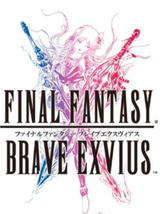>>1787877
>the root issue is IP/copyright
No. The issue is false advertising and lack of transparency. The affected games are sold as a product (one time purchase), yet publishers treat them as a service.
Sure, games might say "internet required", but this has some issues.
1. "internet required" is a vague label. It might just mean "internet is required for in-app purchases, online multiplayer, game updates" while the game still works fine offline. ("Pokemon UNITE" and the PS4 version of "Awesomenauts" say "requires internet". Yet both are playable offline. Sure, it's against bots, but that's fine according to SKG)
2. It doesn't solve the core issue, which is "I have internet (I match requirements on the game box), but I can't play the game because the servers no longer work. I'm not told when they'll no longer work.".
The issue with live "service" games is that they never tell the customer when the service will end, so they're not really services.
Some examples of a real service are:
- A movie ticket - lasts one sitting of a movie.
- A bus ticket - usually says "valid for the next 2 hours".
- An amusement park ticket - usually says "valid only on this exact date".
- A WoW or Netflix subscription - it tells you "you're subscribing for 30 days".
Meanwhile, look at "Diablo 4".
First of all, you might miss the small text at the bottom of their website which says "Internet connection required to play". And even if you see it, it doesn't actually tell you "this game is completely unplayable without internet". And even if it did say that, when you spend $60 on the game it doesn't tell you when the service will expire (when exactly servers will shut down). So, when you're "buying" this game you're basically gambling because you don't know if the game will become unplayable in a few weeks or months, or a few years.
It's ultimately a consumer issue which is completely unrelated to IP laws and has nothing to do with them. It's all about planned obsolescence.


















